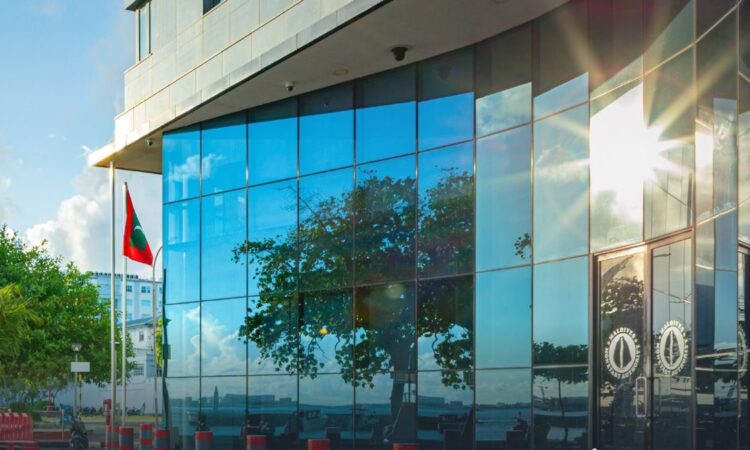
The South Asian nation of Maldives is facing an unprecedented financial crisis as its usable dollar reserves have depleted, marking the first time in the nation’s history that reserves have dropped to a negative balance.
This alarming situation, forewarned by the Maldives Monetary Authority (MMA), has raised concerns across the nation and sparked debate on the causes and potential solutions.
What is the extent of this financial crisis?
The crisis unfolded when the Maldives Monetary Authority (MMA) sent a warning letter to the archipelagic nation’s finance ministry, indicating that the country’s usable dollar reserves were dangerously low and could run out before the end of August, reported Male-based news outlet Adhadhu.
Also Watch:
As of August 21, the reserves had indeed turned negative, a development confirmed by multiple reliable sources to Adhadhu. This marks a significant financial low point for the island nation.
The severity of the situation was highlighted by a $25 million oil bill that was due for payment on the same day. A source close to the government finances noted, “If it reached minus, today the reserve reached a minus because of the USD 25 million oil bill. That payment cannot be delayed.”
The depletion of usable reserves, which are critical for paying off loans, financing essential imports, and covering overseas expenses for Maldivian students, has left the nation in a precarious position.
What has caused this decline?
The decline in reserves is attributed to several factors, including the need to repay loans, increased expenditure on oil, and other essential imports. The MMA had previously warned that without securing additional revenue early in the year, the government would face difficulties in managing its budget deficit.
Gross international reserves had already fallen from USD 509 million at the end of June to USD 395 million by the end of July, with usable reserves plummeting to just USD 43 million, far below what is required for a month’s essential imports.
Also Read:
India to launch UPI payment service in Maldives
The situation has prompted drastic measures from the Maldives’ banking sector. The Bank of Maldives (BML) took steps to restrict dollar transactions, including blocking dollar transactions with Rufiyaa cards and capping credit card limits at $100.
BML CEO and MD Karl Stumke stated, “This year, the national bank had purchased approximately $60 million in foreign currency from its customers, but card usage was three-fold higher than that.” However, the bank reversed these restrictions shortly after implementing them, following instructions from the regulator.
How has the government responded?
Despite the dire financial situation, both the MMA and the Finance Ministry have attempted to downplay the crisis. They have reassured the public that reserves would stabilise by the end of August, with the MMA forecasting an increase in reserve levels. Nonetheless, the lack of official commentary has fueled public concern and criticism from political figures.
Former Maldives President Mohamed Nasheed called for greater transparency, urging the government to inform the public clearly about the causes of the crisis, what to expect next, and the steps planned to overcome it.
He said that the people should be informed in clear terms how the financial situation has reached this point, what is expected to happen next and what is planned to be done to overcome it.
Also Read:
Does Muizzu want Maldives back in India’s fold? A hint from economic crisis
Former Maldives Finance Minister Ibrahim Ameer criticised the government’s reliance on expected revenues and warned of a potential downgrade in the Maldives’ credit rating by agencies such as Fitch and Moody’s.
Ameer remarked, “The state’s fiscal policy and financial affairs cannot be shaped that way. This is what will happen if we leave the affairs of this country to depend on the expected revenue of MVR 16 billion.” He also pointed out the adverse effects of unchecked revenue expenditure, particularly the hiring of additional staff for political purposes, which has further strained the nation’s finances.
What can the Maldives do to navigate this crisis?
As the crisis unfolds, experts have suggested that the Maldives may need to tap into the Sovereign Development Fund (SDF) if the situation worsens. However, the government and MMA have so far denied the likelihood of reaching that point.
In a bid to increase dollar revenue, the government is planning to raise various fees and taxes, including airport departure fees and green tax, alongside the introduction of new taxes, such as those on sand for land reclamation.
The Maldives requires approximately $70 million each month for essential imports, with an annual obligation of $508 million for foreign loan repayments. The current reserve levels are insufficient to cover these needs for even a month.
Also Watch:
